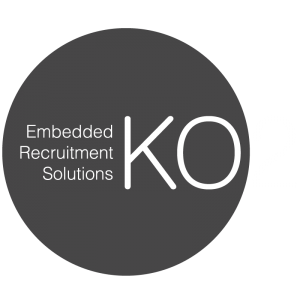In the world of recruitment, technical talent is short in supply and high in demand. Companies across a wide range of industries are looking for top software developers, but many struggle to stand out from their competitors and attract candidates with the right mix of technical prowess and creative innovation.
Whether you’re a recruiter or a business owner, hiring software developers is one of the biggest challenges you’ll face as part of your career. Not only is the recruiting process more complex, but the pool of candidates you’re sourcing from is much smaller than most other professions and has a lot more people looking to hire from it.
There’s no single action you can take to secure success when it comes down to recruiting software engineers. Instead, you’ll need to put the work in before you even begin sourcing potential candidates, get creative with your hiring process, and never take your eye off the ball.
To help streamline your recruiting strategy and guarantee that your business stands out, we’ve put together this guide of how to recruit software developers.
Before You Begin
If you’ve been recruiting for software engineers for a while then you’ll know that the hard work of finding the perfect candidate begins long before you post a job advert or start prospecting. You want your opportunity to sound as appealing as possible when it reaches the talent pool, and you also want to make sure that you’re only sourcing talent that is right for the role.
Build Out Your Brand
If you’re wondering how to attract software developers that are going to be a real asset to your business, building a brand image for your company that paints it as a desirable place for software developers to work should be top of your list. Potential candidates are going to be far more interested in working for a company they have already heard of, or one that has a clear brand identity and markets itself as a top employer of tech talent.
Good company branding comes down to marketing, PR and social media, all of which help to get your business out there and create more interest in what you do. Inbound recruiting is a technique that relates to this; establishing a brand image that stands out and attracts both passive and active candidates through creating relevant and engaging content. If you’ve got a larger audience, you’ll have a larger talent pool to recruit from.
Software developers in particular will be interested in working for companies that are offering new and exciting projects for their employees, use an up-to-date tech stack and provide a working environment that caters to their developers.
If you’re looking to appeal to the top percentage of software developers, you also need to ensure that your company and job opportunity are unique, or at least offer competitive benefits. In some cases, you’ll be recruiting software engineers that are already in a development role with another company, and you won’t catch their attention unless you can offer them a better experience.
Define Your Objectives
Sifting through unsuitable candidates is one of the biggest software developer hiring challenges, and can also mean that you miss out on hiring the perfect person because they get offered another job whilst you’re still sorting through interviewees. Before you post a position online or start thinking about how to hire a software engineer, it’s incredibly useful to define exactly what you are looking for.
Ask yourself the following:
- What is the issue you are trying to resolve? Is there a specific product you are looking to develop that requires certain skills or experience, or are you looking for a new team member for a current project?
- What abilities are you looking for? Deciding on the specific assessments that candidates will need to pass will not only narrow down your search but also give you an outline for the recruiting process.
- Is there a time limit for this vacancy? Do you need your new employee to start by a certain date, or can you be flexible if they still have another job?
This information will help you to write a more specific job advertisement, and also help to weed out any unsuitable potential candidates right at the start of the recruitment process.
Know Where to Look
It’s one of the most obvious pieces of recruitment advice, but you’re not going to find the perfect software developer if you’re looking in all the wrong places. This is particularly relevant when hiring tech talent, as the selection of potential candidates is so limited that you often have to get creative in order to find the perfect person.
As well as more traditional routes such as LinkedIn, your social media following and specialist recruitment agencies, there are more specific places that you can search for potential software development candidates that your competitors may not have considered:
- Technical blogs: Many software developers run their own blogs that focus on their specialist interest in software engineering. These give you a great insight into a developer’s skills, knowledge and communication style, and can be a goldmine of passive candidates
- Conferences: Relevant technical conferences are full of speakers and audience members who all have interests or abilities in software development, and are a great place for networking. Even if you don’t manage to find anyone interested in filing your role right now, you’ll have made useful connections for future opportunities.
- Open source code contributors: This might already be a part of your sourcing process if you’ve been recruiting tech talent for a while, but sites that host open-source projects like GitHub are a brilliant place to find potential software development candidates. You can see samples of an individual’s code on these kinds of platforms, which also gives you an insight into whether their skills are right for your project or business










